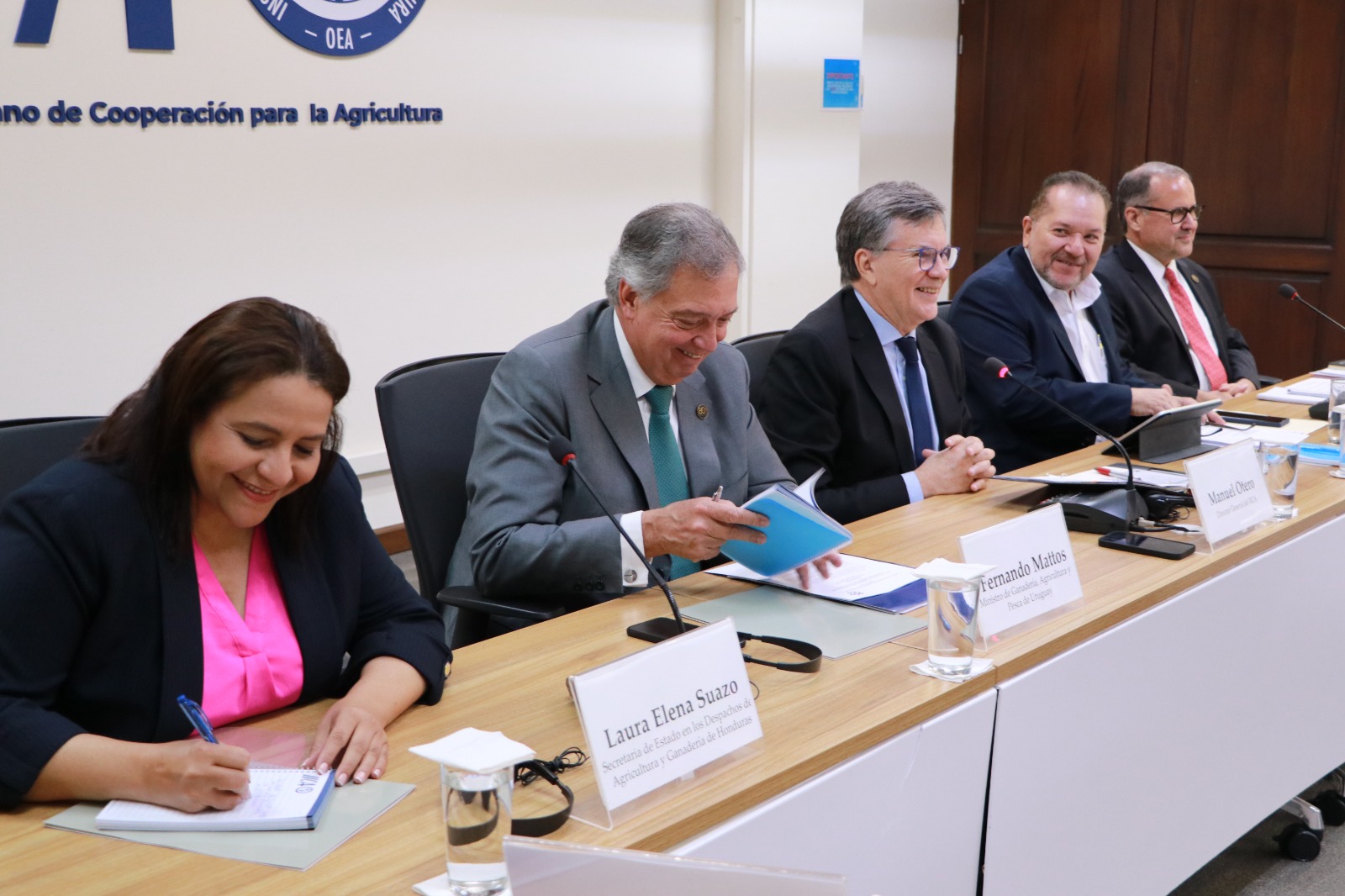Representatives of regional agricultural coordination mechanisms of the Americas make strides in fostering ongoing dialogue to drive trade.

San Jose, 3 October 2023 (IICA) – Senior agricultural officials and international trade experts gathered at the Headquarters of the Inter-American Institute for Cooperation on Agriculture (IICA) in San Jose, Costa Rica, with a view to strengthening public and private institutional capacities and fostering collaboration among regional agricultural coordination mechanisms of the Americas to bolster intraregional trade.
Participating in the meeting were representatives of the Southern Agricultural Council (CAS), the Central American Agricultural Council (CAC), the Caribbean Community (CARICOM), the Organization of Eastern Caribbean States (OECS), the Andean Agricultural Forum – Andean Agricultural Agenda (AAA), and the Secretariat of Agriculture and Rural Development (SADER) of the Government of Mexico.
At the meeting, which was held prior to the official opening of the Conference of Ministers of Agriculture of the Americas 2023, IICA Director General Manuel Otero underscored the need to intensify and undertake concrete actions in the field of agricultural trade.
Also participating was the Secretary of Agriculture and Livestock of Honduras, Laura Suazo, who considered that the first link in marketing chains should be producers and the social structures involved in agriculture, which would allow for revaluing land production.
“Block alliances in our region will play a key role in giving commercial value to devalued agricultural assets. Our duty is to raise the value of agriculture in the field of trade, to prevent migration in our countries”, maintained Suazo.
In turn, Fernando Mattos, Minister of Livestock, Agriculture and Fisheries of Uruguay and President of the Southern Agricultural Council (CAS), emphasized the social effects of climate change.
“Droughts and climate variability not only have grave agricultural and environmental consequences, but also a negative impact on local economies, causing a social imbalance”, he said.
The Minister of Agriculture and Livestock of El Salvador and pro tempore President of the Central American Agricultural Council (CAC), Óscar Enrique Guardado Calderón, remarked that trade is a key link in the production chain, which is why regulatory frameworks must be created to guide companies, production sectors, investors, cooperatives and small and medium-sized enterprises.
“Different global situations make it necessary to assess agriculture in our region from a new perspective. One such example is climate change, which affects producers in the Central American Dry Corridor in particular. Therefore, efforts should be undertaken to bolster the trade of small and medium-scale agricultural activities”, he stated.
The regional coordination mechanisms agreed to share their work agendas to identify common topics that would allow for strengthening trade in the Americas and the Caribbean.
The agricultural coordination mechanisms of the Caribbean region, represented at the meeting by the Organization of Eastern Caribbean States (OECS) and the Caribbean Community (CARICOM), expressed special interest in efforts aimed at minimizing the consequences of climate change on their agricultural trade.
They also highlighted the leading role of agriculture in the Caribbean as a force for change and economic driver.
More information:
Institutional Communication Division.
comunicacion.institucional@iica.int











